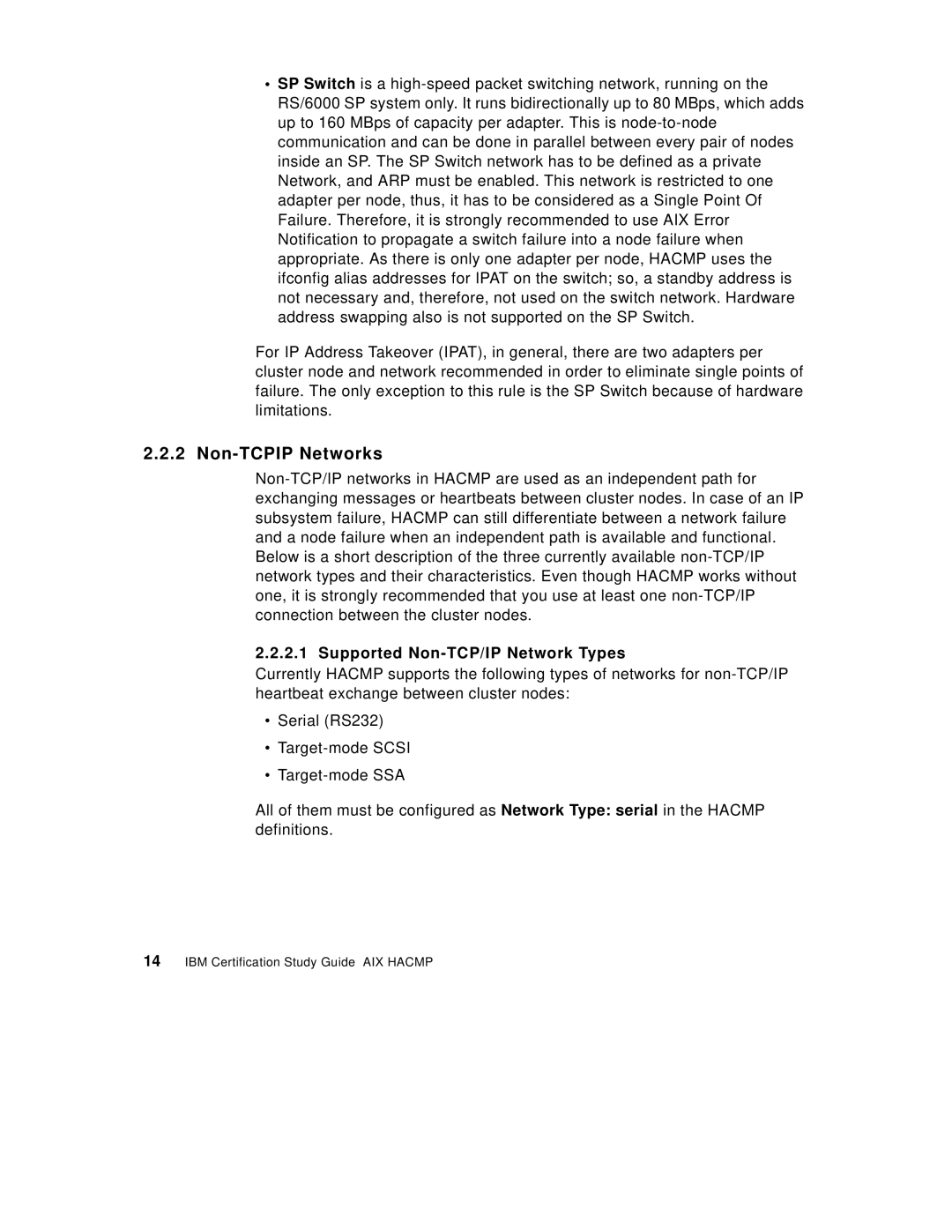•SP Switch is a
For IP Address Takeover (IPAT), in general, there are two adapters per cluster node and network recommended in order to eliminate single points of failure. The only exception to this rule is the SP Switch because of hardware limitations.
2.2.2 Non-TCPIP Networks
2.2.2.1 Supported Non-TCP/IP Network Types
Currently HACMP supports the following types of networks for
•Serial (RS232)
•
•
All of them must be configured as Network Type: serial in the HACMP definitions.
